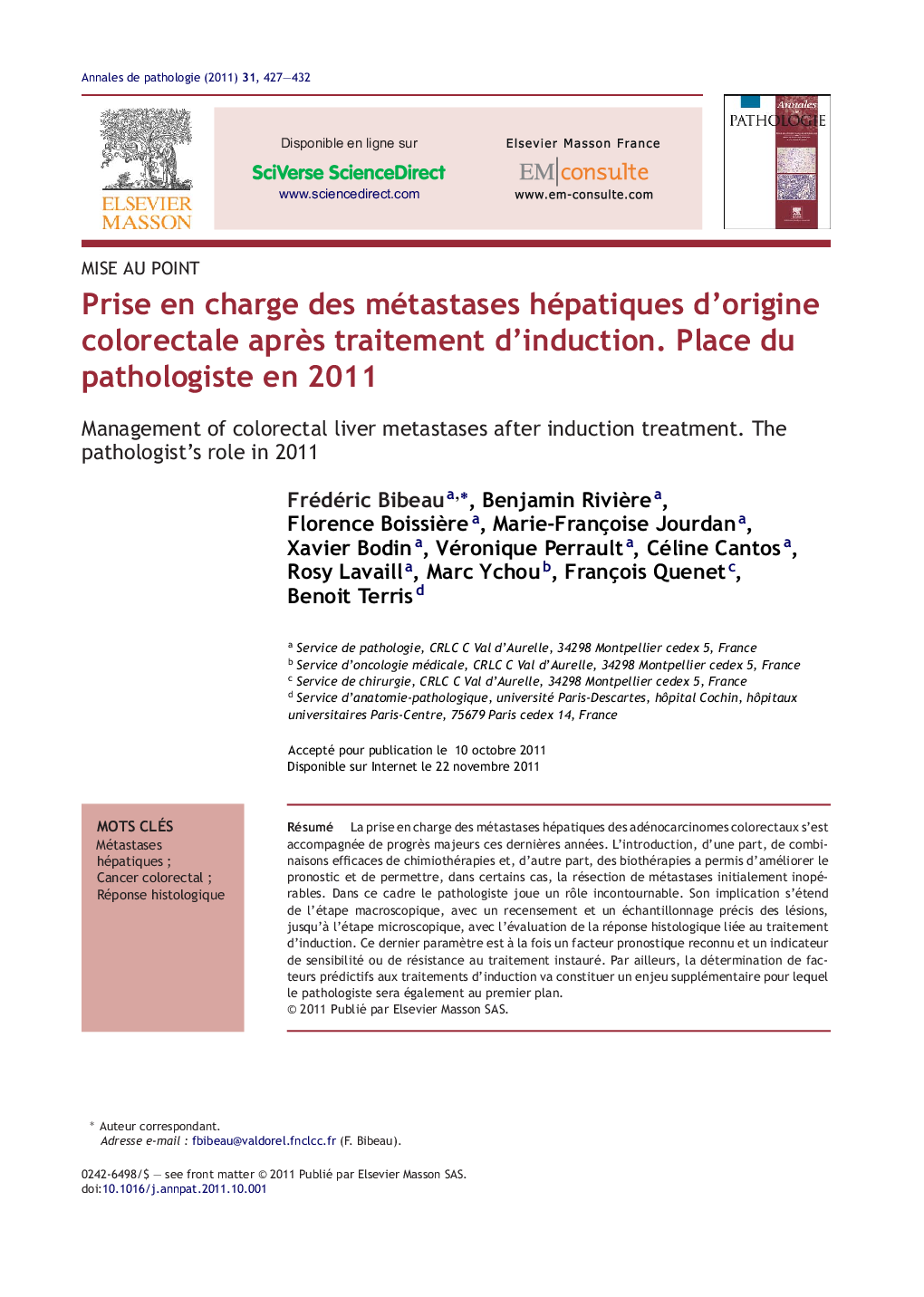| Article ID | Journal | Published Year | Pages | File Type |
|---|---|---|---|---|
| 4128182 | Annales de Pathologie | 2011 | 6 Pages |
Abstract
The management of colorectal liver metastases has been improved these last years. The efficacy of chemotherapy regimens and targeted therapies has led to a better prognosis. It has also allowed the resection of metastases initially unresectable. In this setting, the pathologist plays a major role. He is involved in the gross examination, in order to perform an adequate sampling of the lesions. He is also involved at the morphological level, for the assessment of the pathological response, which is now recognized as a prognostic factor and a marker of sensitivity or resistance to a given treatment. Moreover, the determination of predictive markers of response or resistance to induction treatments will constitute a supplementary and major challenge for the pathologist.
Related Topics
Health Sciences
Medicine and Dentistry
Pathology and Medical Technology
Authors
Frédéric Bibeau, Benjamin Rivière, Florence Boissière, Marie-Françoise Jourdan, Xavier Bodin, Véronique Perrault, Céline Cantos, Rosy Lavaill, Marc Ychou, François Quenet, Benoit Terris,
